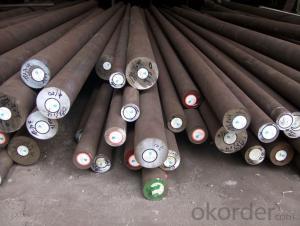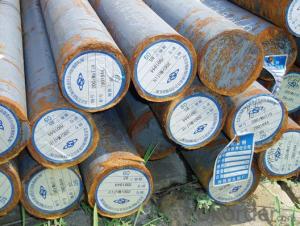Alloy Tool Steel Bar 42CrMo4 Round Steel
- Loading Port:
- China main port
- Payment Terms:
- TT OR LC
- Min Order Qty:
- 30 m.t.
- Supply Capability:
- 10000 m.t./month
OKorder Service Pledge
OKorder Financial Service
You Might Also Like
Item specifice
Alloy Tool Steel Bar 42CrMo4 Round Steel
Product information:
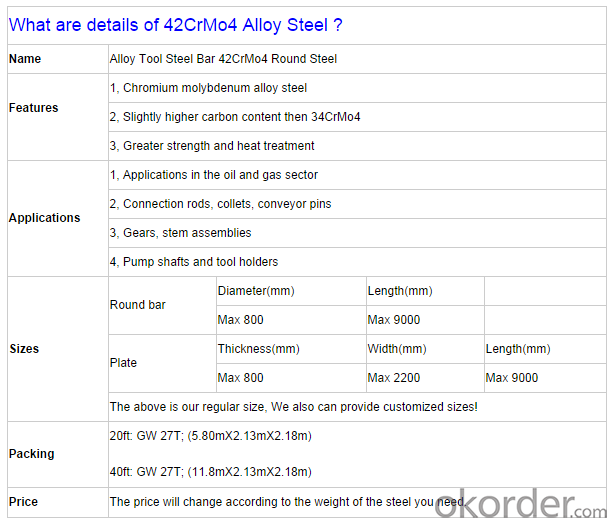
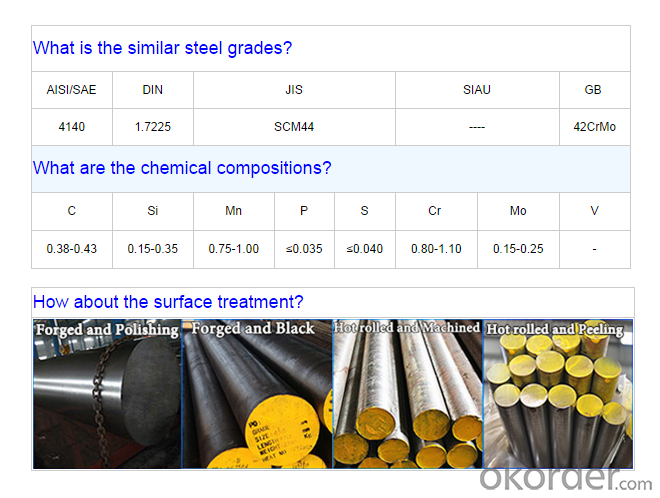
Other product show:
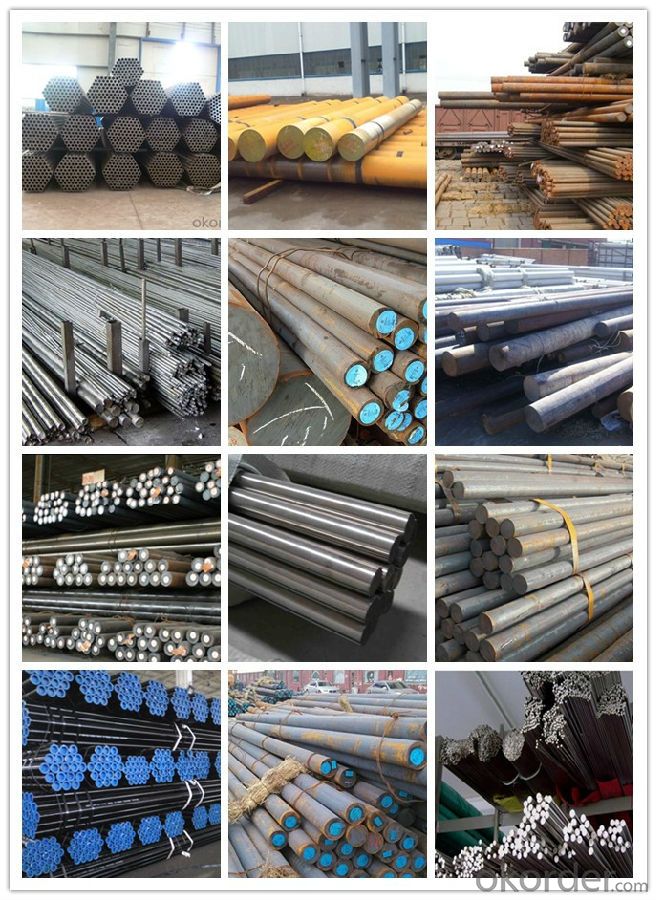
Our workshop show:
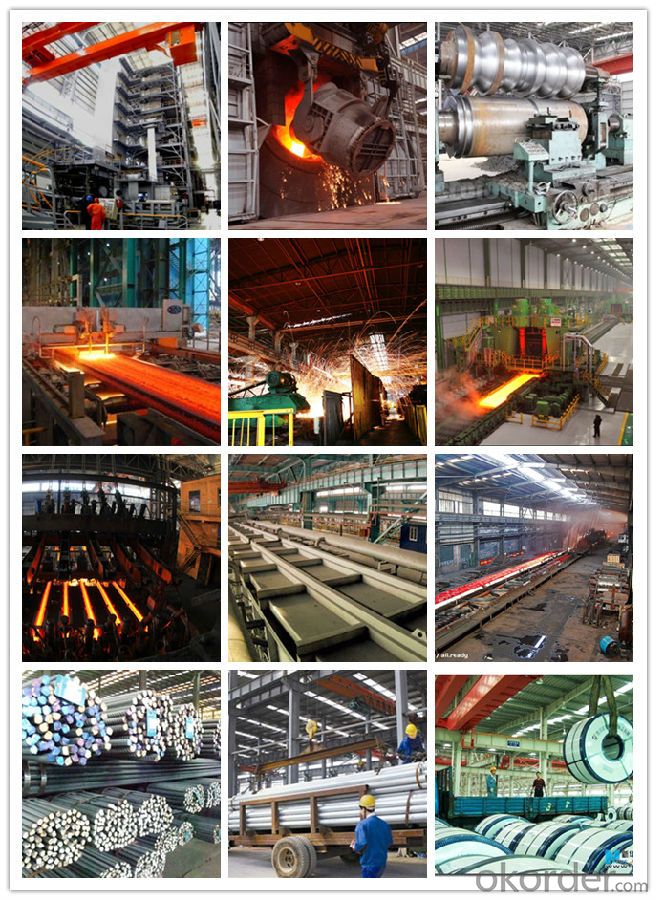
Our service:
-High manufacturing accuracy
-High strength
-Small inertia resistance
-Strong heat dissipation ability
-Good visual effect
-Reasonable price
Chose happens because of quality, then price, We can give you both.Additionally, we can also offer professional products inquiry, products knowledge train(for agents), smooth goods delivery, exellent customer solution proposals.Our service formula: good quality+good price+good service=customer's trust
SGS test is available, customer inspection before shipping is welcome, third party inspection is no problem.
If you need the sample, please feel free to let me know. Any question, we will contact you ASAP!
- Q:How does special steel contribute to the chemical processing aftermarket industry?
- The chemical processing aftermarket industry heavily relies on special steel, which offers a wide range of benefits to enhance the efficiency and performance of equipment. Firstly, special steel is well-known for its exceptional strength and durability, making it ideal for applications involving high pressure, extreme temperatures, and corrosive environments. This durability ensures that the equipment can withstand challenging conditions and operate reliably for extended periods, reducing the need for frequent maintenance and replacement. Furthermore, special steel possesses excellent resistance to corrosion, oxidation, and chemical reactions, which are common challenges in the chemical processing industry. This resistance allows the equipment to handle various chemicals without deteriorating or contaminating the process, ensuring the quality and safety of the end products. Additionally, special steel can withstand the formation of scale, deposits, and other contaminants that can hinder equipment efficiency, reducing the frequency of cleaning and maintenance. Moreover, special steel offers superior mechanical properties such as toughness, hardness, and impact resistance, which are essential for handling heavy loads and abrasive materials. This ensures that the equipment can withstand demanding operational conditions and maintain its performance over time, resulting in enhanced productivity and reduced downtime. Another significant contribution of special steel to the chemical processing aftermarket industry is its versatility. It can be customized and tailored to meet specific requirements, allowing for the manufacturing of complex parts and components essential for various chemical processes. Special steel can be fabricated into different shapes and sizes, enabling the creation of intricate designs and structures that optimize equipment efficiency and effectiveness. In conclusion, special steel is vital to the chemical processing aftermarket industry due to its exceptional strength, durability, resistance to corrosion and chemical reactions, as well as its versatility. By providing reliable and high-performance equipment, special steel significantly contributes to the overall efficiency, safety, and productivity of chemical processing operations.
- Q:What are the cost implications of using special steel?
- The cost implications of using special steel can vary depending on factors such as the specific type of special steel required, its availability, and the market demand. Generally, special steel is more expensive than regular steel due to its unique composition and enhanced properties. Additionally, the production process for special steel may involve additional steps or specialized equipment, further increasing the cost. However, the higher cost of special steel can often be justified by its superior performance and durability, making it a worthwhile investment for applications that require specific characteristics or high-performance requirements.
- Q:Can special steel be used for making electronics components?
- Yes, special steel can be used for making electronics components. Special steel, such as stainless steel, can provide excellent corrosion resistance, durability, and electrical conductivity, making it suitable for various applications in electronics manufacturing.
- Q:How does hot rolling affect the microstructure of special steel?
- Hot rolling, a metalworking process, involves heating steel above its recrystallization temperature and passing it through rollers to reduce thickness. This process significantly affects the microstructure of special steel. When steel is hot rolled, the high temperature prompts the grains to recrystallize, eliminating defects and creating a more uniform and refined grain structure. This leads to smaller, equiaxed grains, which enhance the steel's mechanical properties. Furthermore, hot rolling encourages the formation of microstructural features like dislocation cells and subgrains. These features increase the steel's strength and toughness, making it suitable for applications requiring high performance and durability. Moreover, hot rolling can cause certain alloying elements to precipitate within the steel. These precipitates play a crucial role in enhancing specific properties such as corrosion resistance or high-temperature strength. Overall, hot rolling profoundly impacts the microstructure of special steel. It refines the grain structure, promotes beneficial microstructural features, and facilitates the precipitation of alloying elements. These changes contribute to improved mechanical properties and performance, making hot rolled steel a preferred choice in industries like automotive, aerospace, and construction.
- Q:How does special steel perform in terms of high-temperature strength?
- Special steel performs exceptionally well in terms of high-temperature strength. It exhibits excellent resistance to deformation, creep, and oxidation at elevated temperatures, making it suitable for various applications that require stability and strength under extreme heat conditions.
- Q:What are the main characteristics of heat-resistant steel forgings?
- Heat-resistant steel forgings have several main characteristics. Firstly, they possess superior thermal stability, enabling them to maintain their strength and mechanical properties even at high temperatures. This is crucial in applications where the forgings are subjected to intense heat and thermal cycling, such as in jet engines or industrial furnaces. Secondly, they exhibit excellent oxidation and corrosion resistance, ensuring longevity and reliability in harsh environments. Additionally, heat-resistant steel forgings typically have high creep resistance, allowing them to withstand prolonged exposure to elevated temperatures without deformation. They are also known for their exceptional toughness and resistance to thermal fatigue, making them highly durable under extreme conditions. Overall, these characteristics make heat-resistant steel forgings essential components in industries requiring materials capable of withstanding demanding thermal conditions.
- Q:How does special steel contribute to the power generation machinery industry?
- The power generation machinery industry greatly benefits from the use of special steel, which plays a vital role in improving the efficiency, reliability, and durability of power generation equipment. To begin with, special steel possesses remarkable mechanical properties, including high strength, toughness, and temperature resistance. These properties make it an excellent choice for manufacturing essential components of power generation machinery, such as turbines, generators, and boilers. The outstanding strength and toughness of special steel enable these components to withstand extreme pressures, temperatures, and harsh operating conditions, guaranteeing the safe and efficient functioning of power plants. Furthermore, special steel alloys can be specifically engineered to resist corrosion, erosion, and wear, which are common challenges faced by power generation equipment. Corrosion occurs due to chemical reactions between metals and the environment, while erosion and wear result from the high-speed flow of steam, water, or gases. By utilizing corrosion-resistant and wear-resistant special steel, power generation machinery can operate for extended periods without significant deterioration, thereby reducing maintenance needs and downtime. Another significant contribution of special steel to the power generation machinery industry is its ability to retain magnetic properties at high temperatures. This is particularly crucial for electrical generators, as it ensures optimal performance and efficiency. Special steel with excellent magnetic properties enables generators to produce electricity with minimal energy losses caused by heat, resulting in increased power output and reduced energy consumption. Moreover, the design flexibility of special steel allows for the production of customized components tailored to the specific requirements of various power generation technologies. For instance, in nuclear power plants, special steel alloys with high resistance to radiation and neutron embrittlement are used for constructing reactor pressure vessels and other critical components. In renewable energy systems like wind turbines, special steel with superior fatigue resistance is utilized to withstand the cyclic loading experienced by turbine blades. In conclusion, special steel plays a crucial role in the power generation machinery industry by improving the efficiency, reliability, and durability of power generation equipment. Its exceptional mechanical properties, corrosion resistance, wear resistance, magnetic properties, and design flexibility make it indispensable for manufacturing components capable of withstanding extreme conditions and ensuring the continuous and efficient generation of electricity.
- Q:What are the different methods of surface coating for special steel?
- For special steel, there exists a variety of surface coating methods that can be utilized based on the desired outcome and application. Some of the most frequently employed techniques are as follows: 1. Electroplating: By employing an electric current, a thin layer of metal can be deposited onto the surface of the steel. This process enhances the steel's corrosion resistance, wear resistance, and overall aesthetic appearance. 2. Hot-dip galvanizing: This method entails immersing the steel in molten zinc, resulting in the formation of a protective coating on the surface. Hot-dip galvanizing offers exceptional corrosion protection and can be utilized for both interior and exterior applications. 3. Powder coating: This technique involves the application of a dry powder onto the steel's surface, followed by heating and curing to create a durable and visually appealing coating. Powder coating provides excellent corrosion resistance, impact resistance, and allows for customization of colors. 4. Physical vapor deposition (PVD): PVD is a vacuum coating process where thin layers of metal are deposited onto the steel's surface. This method enhances the steel's hardness, wear resistance, and chemical resistance. It is commonly employed for decorative finishes and to improve the performance of cutting tools. 5. Chemical conversion coating: This method entails treating the steel surface with a chemical solution, which reacts with the surface to form a protective coating. Chemical conversion coatings provide corrosion resistance and can serve as a base for painting or other coatings. 6. Thermal spraying: Thermal spraying involves melting or heating a coating material and projecting it onto the steel surface using a spray gun. This technique can be utilized to apply a wide range of coatings, including metals, ceramics, and polymers. Thermal spraying improves the steel's wear resistance, corrosion resistance, and thermal insulation properties. These examples merely scratch the surface of the available surface coating methods for special steel. The choice of method relies on factors such as desired properties, application requirements, and budget. Consulting with experts in the field is crucial to determine the most suitable coating method for specific steel applications.
- Q:Can special steel be used in the production of precision instruments?
- Yes, special steel can be used in the production of precision instruments. Special steel alloys possess excellent mechanical properties, such as high strength, hardness, and corrosion resistance, making them suitable for manufacturing precision instruments that require high accuracy and durability. Additionally, special steel can be tailored to specific applications, allowing for customized properties to meet the unique requirements of precision instruments.
- Q:How does special steel contribute to the manufacturing aftermarket industry?
- Special steel contributes to the manufacturing aftermarket industry by providing high-quality materials that are crucial for producing durable and reliable aftermarket parts and components. Its unique properties, such as increased strength, corrosion resistance, and heat resistance, make it ideal for manufacturing aftermarket products that need to withstand demanding conditions. Additionally, special steel's versatility and ability to be machined into complex shapes allow manufacturers to create customized aftermarket solutions, enhancing performance and extending the lifespan of various industrial machinery and equipment.
1. Manufacturer Overview |
|
|---|---|
| Location | |
| Year Established | |
| Annual Output Value | |
| Main Markets | |
| Company Certifications | |
2. Manufacturer Certificates |
|
|---|---|
| a) Certification Name | |
| Range | |
| Reference | |
| Validity Period | |
3. Manufacturer Capability |
|
|---|---|
| a)Trade Capacity | |
| Nearest Port | |
| Export Percentage | |
| No.of Employees in Trade Department | |
| Language Spoken: | |
| b)Factory Information | |
| Factory Size: | |
| No. of Production Lines | |
| Contract Manufacturing | |
| Product Price Range | |
Send your message to us
Alloy Tool Steel Bar 42CrMo4 Round Steel
- Loading Port:
- China main port
- Payment Terms:
- TT OR LC
- Min Order Qty:
- 30 m.t.
- Supply Capability:
- 10000 m.t./month
OKorder Service Pledge
OKorder Financial Service
Similar products
New products
Hot products
Related keywords

